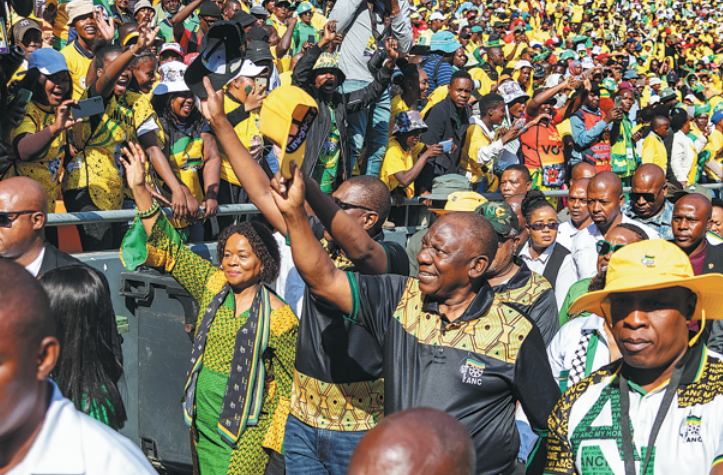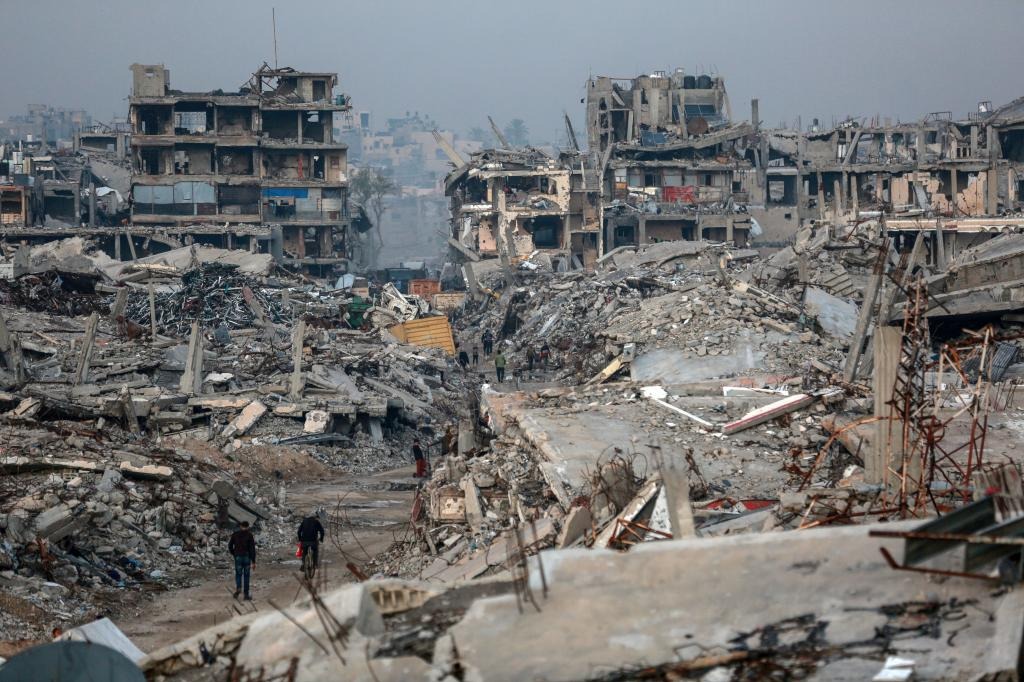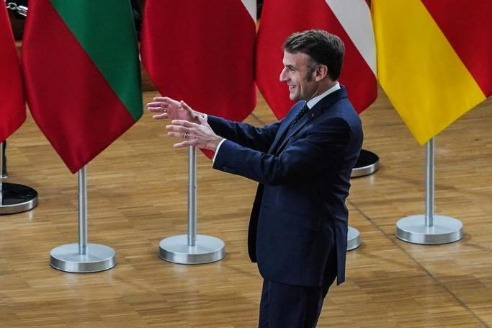ANC faces stiff contest in South Africa elections


South Africa's long-ruling African National Congress party is expected to face serious challenges in the upcoming elections, the most fiercely contested poll in 30 years, with the public calling for massive reforms to address a range of problems plaguing the country, including a sluggish economy, high unemployment rate and corruption.
Wednesday's national and provincial elections "would be the most highly contested elections since 1994. This is the first time that more than two former senior leaders of the African National Congress are challenging the ANC", said Sethulego Matebesi, an associate professor and head of the department of sociology at the University of the Free State, in Bloemfontein, South Africa.
The ANC won a majority in all previous elections in South Africa since it came into power in 1994 after the end of apartheid. In the 2019 election, the party got 57.5 percent of the votes. The main opposition parties include the Democratic Alliance and the Economic Freedom Fighters party.
Matebesi said that people will expect whoever wins to prioritize provision of clean water and electricity, combating crime and corruption and creation of jobs. The current unemployment rate in South Africa is around 33 percent, one of the highest in the world.
Gideon Chitanga, a researcher from the University of Johannesburg's Centre for Africa-China Studies, said the 2024 elections could see the ANC's dominance being put to test for the first time. He said the elections will see a major challenge to the 30-year ANC rule. While South Africa has made huge progress in democratic consolidation, economic growth has been less than robust because of local and international factors, he added.
He said the paradox of South Africa is that while progress has been made in democratic consolidation, political freedom and building institutions of democracy, there are few economic opportunities. South Africa has been recording an average of less than 1 percent per annum economic growth, while the country's economic blueprint, the National Development Plan, targets an annual economic growth rate of 5 percent to match the growing population.
"The opinion polls suggest that there will be some coalition governments ... I think the ANC will win with a slight majority," he said. "The country should work with its international partners like China and the United States to attract more capital to address unemployment, inequality and poverty. More needs to be done to address the challenges of weak economic growth, crime, corruption and governance."
Nombuso Khumalo, a 40-year-old resident of Johannesburg, said she is ready to vote for the party of her choice. The party that will win must create job opportunities, ensure there is water and electricity and show commitment in fighting social ills like drug abuse, said Khumalo. She said she registered to vote and promised to wake up early on voting day.
The past weekend saw most of the political parties canvassing for votes across the country. ANC President Cyril Ramaphosa addressed supporters in Johannesburg where he promised to rule with integrity when his party is elected to power. He promised economic growth and an end to unemployment. Democratic Alliance leader John Steenhuisen addressed party supporters in Western Cape where he promised to "save South Africa". He promised to tackle corruption, grow the economy and create jobs.
Enock Kavindele, head of Southern African Development Community Electoral Observation, said the organization will observe the campaigns and actual voting process including the counting to ensure that these elections are conducted in a peaceful, free, fair, transparent and credible manner.
Busisiwe Mavuso, CEO of Business Leadership South Africa, an association of South Africa's major corporations, told China Daily that elections raise the risk premium of the country, which is expected to dissipate after the elections. Some investors usually have a "wait and see" attitude till the election results are announced. Mavuso pointed out that it is important for South Africa to make the environment conducive for investment with steps such as friendly immigration policies, tackling crime and removing red tape.
The author is a freelancer journalist for China Daily.
































